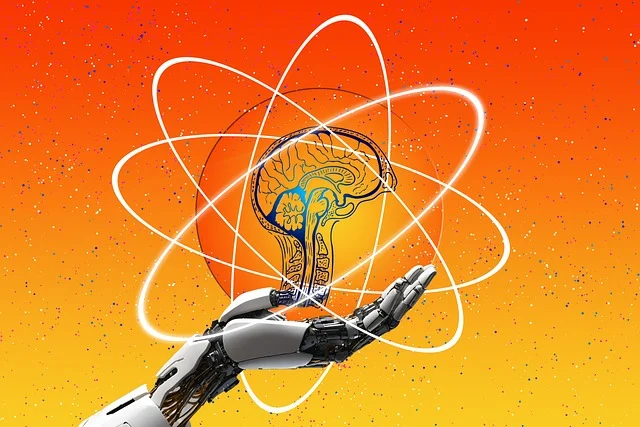Python for Data Science Certification: A Complete Guide

Introduction
In today’s data-driven world, Data Science is one of the most lucrative and rapidly growing fields. At the heart of Data Science is Python, a powerful and versatile programming language widely used for data analysis, machine learning, artificial intelligence, and much more. If you’re considering a career in data science, obtaining a Python for Data Science certification can significantly enhance your skills and make you more competitive in the job market.
In this article, we’ll explore the importance of Python in Data Science, the benefits of certification, and how you can earn a Python for Data Science certification. We’ll also take a look at some of the best courses and resources available, and answer some frequently asked questions.
Why Python is the Go-To Language for Data Science
Python is the preferred language for data science for several reasons:
1. Simplicity and Readability
Python has an easy-to-learn syntax that emphasizes readability, which makes it a perfect language for beginners and experienced programmers alike. It allows developers to focus on solving data problems rather than spending time understanding complex syntax.

2. Vast Libraries and Frameworks
Python comes with a rich ecosystem of libraries and frameworks such as NumPy, Pandas, Matplotlib, Seaborn, Scikit-learn, and TensorFlow that are specifically designed for data analysis and machine learning tasks. These tools make it easier for data scientists to perform statistical analysis, build models, and visualize results.
3. Flexibility
Python is versatile and can be used for everything from data collection and manipulation to building complex machine learning models. It can be integrated with other languages and tools like R, SQL, and Hadoop for handling big data.
4. Community and Support
Python boasts a large and active community of developers and data scientists who continuously contribute to its ecosystem. This results in a wealth of tutorials, forums, and open-source resources, making it easier for learners to access support.
Given these advantages, it’s no surprise that Python is often the first choice for data science professionals.
What is Python for Data Science Certification?
A Python for Data Science certification is an official validation that demonstrates your proficiency in using Python to handle, analyze, and visualize data. Certification programs are offered by various online platforms, universities, and training institutes, and they typically cover fundamental and advanced topics like:
- Data manipulation with Pandas and NumPy
- Data visualization with Matplotlib and Seaborn
- Machine learning with Scikit-learn
- Big Data analysis and integration
- AI applications using Python
Having a certification not only proves your technical knowledge but also boosts your credibility as a data scientist, making you more attractive to potential employers.
Benefits of Python for Data Science Certification
1. Boost Your Career Prospects
Data Science is one of the fastest-growing fields, and Python is essential for most data science roles. Having a Python for Data Science certification can significantly increase your chances of landing a high-paying job. It showcases your ability to solve real-world problems using Python, which is a valuable skill in industries like finance, healthcare, marketing, and technology.

2. Hands-on Learning
Certification programs often involve project-based learning where you work with actual datasets and build models. This hands-on approach ensures that you not only understand the theory but can also apply your knowledge in practical scenarios.
3. Competitive Advantage
The job market is competitive, and employers are looking for candidates with proven skills. A Python certification sets you apart from other applicants and demonstrates your commitment to continuous learning.
4. Improves Your Technical Skills
By pursuing a certification, you’ll gain deep knowledge of Python’s data science libraries, data wrangling techniques, and machine learning algorithms. You’ll also learn best practices for building data science projects and working with real-world datasets.
5. Higher Earning Potential
Certified data scientists with Python expertise are often paid more than their non-certified counterparts. With Python being in high demand, a certification can help you command a higher salary and increase your job prospects in the field.
How to Get Certified in Python for Data Science?
There are several ways to get certified in Python for Data Science. The process generally involves enrolling in an online course, completing the required assignments, and passing the final exam or project. Below are some of the most popular options for Python for Data Science certification.
1. Coursera: IBM Data Science Professional Certificate
Coursera offers the IBM Data Science Professional Certificate, which is a comprehensive course covering Python for Data Science. It includes 9 courses and offers hands-on experience using Python for data analysis, data visualization, and machine learning. Upon completion, you will receive a certificate from IBM.
2. edX: Python for Data Science by UC San Diego
edX offers the Python for Data Science certification program by the University of California, San Diego. This course covers Python’s applications in data analysis, visualization, and machine learning, providing students with the skills they need to succeed in the data science field.
3. Udacity: Data Scientist Nanodegree
The Udacity Data Scientist Nanodegree program is designed for individuals looking to pursue a career in data science. The course covers Python, data wrangling, machine learning, and deep learning, and includes real-world projects to help students build a portfolio.
4. DataCamp: Data Scientist with Python Track
DataCamp offers a Data Scientist with Python track, which includes over 25 hours of content, covering Python’s role in data analysis, data visualization, and machine learning. The program includes hands-on projects and assessments to evaluate your progress.
5. Kaggle: Python for Data Science
Kaggle, a popular platform for data science competitions, offers a Python for Data Science course that is free of charge. The course covers Python basics and data analysis using libraries like Pandas and Matplotlib.
Python for Data Science Certification: Course Breakdown
| Topic | Description |
|---|---|
| Introduction to Python | Learn Python basics, including data types, loops, and functions. |
| Data Wrangling with Pandas | Learn how to manipulate and clean data using Pandas. |
| Data Visualization with Matplotlib & Seaborn | Create visualizations to understand data trends and patterns. |
| Machine Learning with Scikit-learn | Apply Python to create and evaluate machine learning models. |
| Big Data Integration | Learn how Python integrates with big data tools like Hadoop and Spark. |
| Capstone Project | Complete a project using Python to analyze and visualize real-world data. |
Python for Data Science Certification FAQs
1. What is the best Python certification for Data Science?
The best certification depends on your goals. Popular choices include Coursera’s IBM Data Science Professional Certificate, edX’s Python for Data Science, and Udacity’s Data Scientist Nanodegree. Each course offers unique features like hands-on projects, career support, and industry recognition.
2. Is Python certification necessary for a data science career?
While certification isn’t mandatory, it significantly boosts your employability by proving your expertise. Employers value certified professionals because they demonstrate a commitment to learning and staying updated with industry trends.
3. How long does it take to get certified in Python for Data Science?
The time to complete a certification program varies. For instance, Coursera’s IBM Data Science certification takes about 3-6 months to complete, depending on your pace. Other programs like DataCamp and Kaggle can be completed in a few weeks or months.
4. Can I learn Python for Data Science without a background in programming?
Yes, Python is beginner-friendly and many certification programs are designed for non-programmers. You can start from the basics and gradually build up to more advanced concepts.
5. What kind of jobs can I get with a Python for Data Science certification?
With a Python for Data Science certification, you can apply for roles such as Data Scientist, Data Analyst, Machine Learning Engineer, Business Intelligence Analyst, and Data Engineer.
6. Do I need prior knowledge of Data Science to take Python for Data Science certification?
Some basic understanding of mathematics and statistics is helpful but not mandatory. Most Python for Data Science courses are designed to take you from beginner to advanced level, making them suitable for both novices and experienced professionals.
7. Are Python for Data Science certification programs expensive?
The cost varies depending on the platform. Coursera and edX typically offer subscription models, while Udacity’s Nanodegree can be more expensive. However, many platforms offer financial aid or free trials to help with costs.
Conclusion
Earning a Python for Data Science certification is an excellent way to build a strong foundation in one of the most in-demand fields in the tech industry. With Python’s versatility, ease of use, and wide adoption in the data science community, mastering it can open doors to a wide range of career opportunities.
Whether you choose to enroll in an online course from platforms like Coursera, edX, or DataCamp, or pursue a more structured program like Udacity’s Nanodegree, the knowledge and skills you gain will be invaluable in advancing your career in data science.
Start your certification journey today and position yourself as a competitive candidate in the ever-growing field of data science!